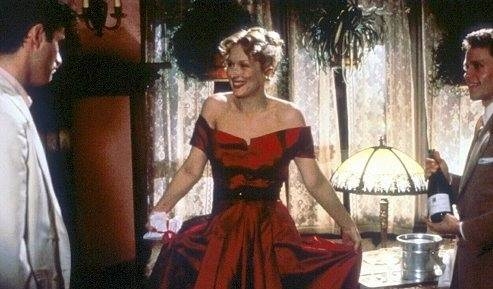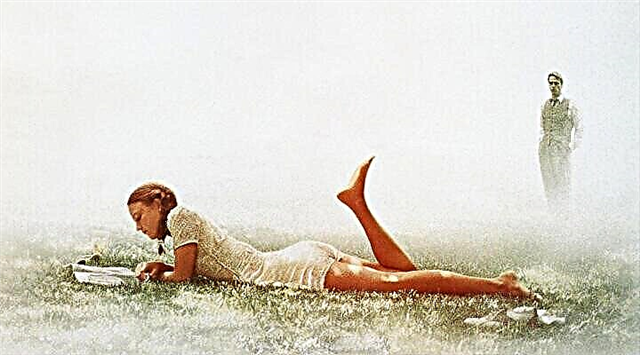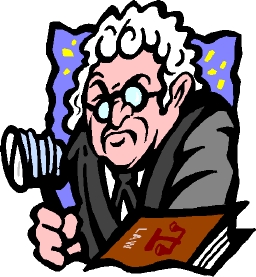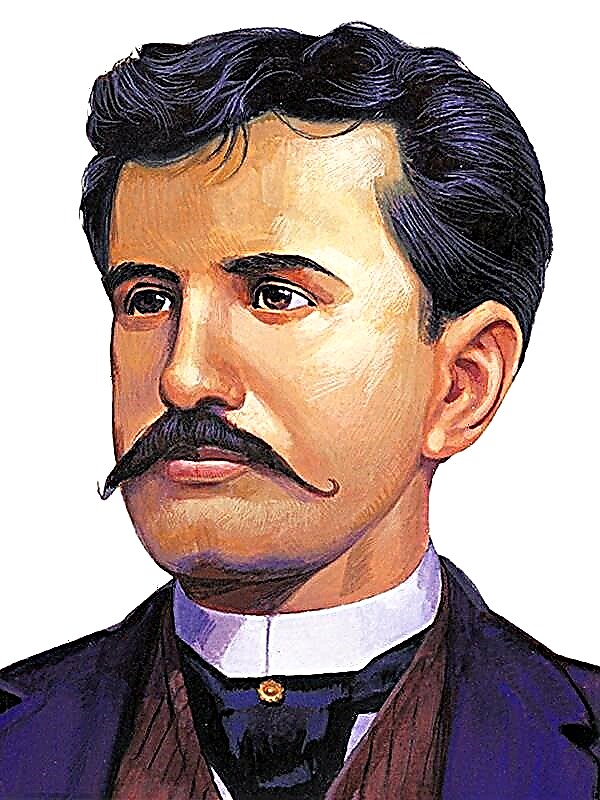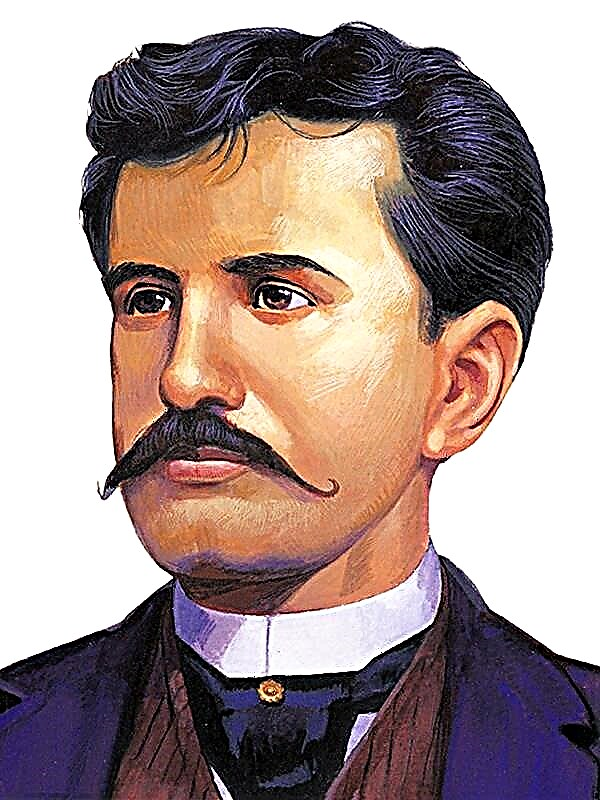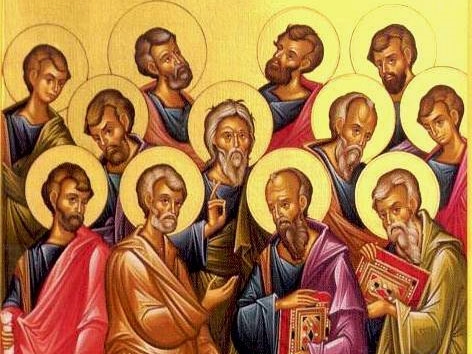The play by Maxim Gorky “At the Bottom” is still the most successful drama in the collection of his works. She won the favor of the public during the author’s lifetime, the writer himself even described performances in other books, ironic about his fame. So why did this work so hook people?
History of creation
The play was written in late 1901 - early 1902. This work was not an obsession or a rush of inspiration, as is usually the case with creative people. On the contrary, it was written specifically for a troupe of actors from the Moscow Art Theater, created to enrich the culture of all classes of society. Gorky could not imagine what would come of it, but he embodied the desired idea of creating a play about tramps, where about two dozen characters would be present.
The fate of Gorky's play cannot be called the final and irrevocable triumph of his creative genius. Opinions were different. People were enthusiastic or criticized such a controversial creation. She survived the prohibitions and censorship, and still everyone understands in their own way the meaning of the drama.
The meaning of the name
The meaning of the title of the play “At the Bottom” embodies the social status of all the characters in the work. The name gives the first impression is ambiguous, since there is no specific mention of what day it is. The author enables the reader to show his own imagination and guess what his work is about.
Today, many literary scholars agree that the author had in mind that his heroes are at the bottom of their lives in a social, financial and moral sense. This is the meaning of the name.
Genre, direction, composition
The play is written in a genre called "socio-philosophical drama." The author addresses precisely such topics and problems. Its direction can be described as “critical realism”, although some researchers insist on the phrase “socialist realism”, since the writer focused on the public injustice and the eternal conflict between the rich and the poor. Thus, his work took on an ideological connotation, because at that time the confrontation between the nobility and the common people in Russia was only heating up.
The composition of the work is linear, since all actions are chronologically consistent and form a single thread of narration.
The essence of the work
The essence of the play by Maxim Gorky is to depict the bottom and its inhabitants. To show readers in the characters of the play marginalized people humiliated by life and fate, rejected by society and severed ties with it. Despite the smoldering light of hope - without a future. They live, argue about love, honesty, truth, justice, but their words are just an empty phrase for this world and even for their own destinies.
Everything that happens in the play has only one purpose: to show the clash of philosophical views and positions, as well as to illustrate the dramas of outcast people to whom no one lends a helping hand.
The main characters and their characteristics
The inhabitants of the bottom are people with different life principles and beliefs, but they all have one condition in common: they are mired in poverty, which gradually deprives them of their dignity, hope and faith in themselves. She corrupts them, condemning victims to certain death.
- Mite - works as a mechanic, 40 years old. Married to Anna (30 years old), suffering from consumption. Relations with the wife are the main characterizing detail. The complete indifference of the Tick to her well-being, frequent beatings and humiliation speak of his cruelty and callousness. After Anna's death, the man was forced to sell his work tools in order to bury her. And only the lack of work a little unsettled him. Fate leaves the hero without a chance to get out of the rooming house and without the prospects of further successful life.
- Bubnov - a man of 45 years old. Previously, the owner of a fur workshop. Dissatisfied with the current life, but tries to maintain the potential for returning to a normal society. Lost ownership due to a divorce, as the documents were executed on his wife. He lives in a rooming house and sews hats.
- Satin - about 40 years old, drinks to the loss of memory and plays cards, where he cheats, than earns his living. I read a lot of books, which constantly reminds me not so much of my neighbors as of my comfort, that not everything is lost. He served 5 years in prison for an unintentional murder committed during a fight for his sister's honor. Despite being educated and accidentally falling, honest ways of being are not recognized.
- Luke - a wanderer at the age of 60. Appeared unexpectedly for the residents of the rooming house. He behaves intelligently, consoles and reassures everyone around him, but as if he came for a certain purpose. He is trying to establish relations with everyone, giving advice, which is fueling even more debate. A hero of a neutral nature, in spite of his good tone, always wants to doubt the purity of intentions. According to his stories, it can be assumed that he was serving a term in prison, but escaped from there.
- Ash - the name is Vasily, 28 years old. He constantly steals, but, despite the dishonest way of making money, he has his own philosophical point of view, like everyone else. He wants to get out of the rooming house and start a new life. He was in prison several times. Has a certain position in this society due to secret relationships with married Vasilisa, which everyone knows about. At the beginning of the play, the heroes part, and Ash tries to look after Natasha in order to take her out of the shelter, but, in a fight, kills Kostylev and ends up in prison at the end of the play.
- Nastya - a young girl, 24 years old. Based on the treatment of her and conversations, we can conclude that she works as a call girl. He constantly wants attention to be needed. Has a connection with the Baron, but not the one she comes up with in her fantasies after reading romance novels. In fact, she suffers rudeness and disrespect from the boyfriend, while giving him money for alcohol. All her behavior is continuous complaints about life and requests to regret.
- Baron - 33 years, drinks, but due to unsuccessful circumstances. Constantly recalls his noble roots, which once helped to become a wealthy official, but did not have much significance when accused of embezzlement of public funds, because of which the hero ended up in prison, remaining poor. He has a love relationship with Nastya, but he treats them as due, passes all his duties to the girl, constantly takes money for drinking.
- Anna - the wife of Tick, 30 years old, is sick with consumption. At the beginning of the play is in a dying state, but does not survive to the end. For all the heroes, an overnight stay is an unsuccessful “interior” item, making extra sounds and taking up space. Until his death, he hopes for the manifestation of her husband’s love, but dies in the corner from indifference, beatings and humiliation, which may have caused the disease.
- Actor - A man, about 40 years old. Just like all the tenants of the rooming house, he always remembers his past life. A kind and fair person, but overly pitying himself. He wants to stop drinking after learning from Luke about a hospital for alcoholics in a city. He begins to save money, but, not having time to find out the whereabouts of the hospital before the wanderer leaves, the hero despairs and ends with suicide.
- Kostylev - Vasilisa's husband, a 54-year-old housekeeper. He perceives people only as walking wallets, likes to remind about debts and assert himself at the expense of the lowland of his own residents. Trying to hide his true attitude behind a mask of kindness. He suspects his wife of treason with Ashes, which is why he constantly listens to the sounds outside his door. He believes that he should be grateful for the night. With Vasilisa and her sister Natasha is treated no better than with drunkards living at his expense. He buys things that Ashes steals, but hides it. By his own stupidity, dies at the hands of the Ashes in a fight.
- Vasilisa Karpovna - Kostylev's wife, 26 years old. No different from her husband, but hates him with all her heart. Secretly cheating on her husband with Ashes and persuading her lover to kill her husband, promising that he would not be sent to prison. But she does not feel any feelings for her sister, except for envy and anger, which is why she gets the most. He seeks profit in everything.
- Natasha - Sister Vasilisa, 20 years old. The "purest" soul of a shelter. Tolerates bullying by Vasilisa and her husband. He can not trust Ash with his desire to take her away, knowing all the vileness of people. Although she herself understands that she will be lost. Helps tenants disinterestedly. He is going to meet Vaska to leave, but he ends up in the hospital after the death of Kostylev and goes missing.
- Sauer - A 40-year-old dumpling trader who tested the strength of her husband, who beat her for 8 years of marriage. Helps residents of the rooming house, sometimes trying to put the house in order. He argues with everyone and is no longer going to get married, recalling his late tyrant spouse. During the play, their relationship with Medvedev develops. At the very end, Kvashnya marries a policeman, whom she herself begins to beat because of her addiction to alcohol.
- Medvedev - Uncle of the sisters Vasilisa and Natasha, a policeman, 50 years old. Throughout the play, she tries to get married to Kvashna, promising that she will not be like her ex-husband. Knows that the niece suffers beatings from her older sister, but does not intervene. Knows about all the frauds of Kostylev, Vasilisa and Ashes. At the end of the play, he marries Kvashna, begins to get drunk, for which his wife beats him.
- Alyosha - a cobbler of 20 years, drinks. He says that he does not need anything, that he is disappointed in life. He drinks from hopelessness and plays the harmonica. Due to violence and drunkenness, he often ends up at the police station.
- Tatar - also lives in a rooming house, works as a housekeeper. He likes to play cards with Satin and Baron, but always resents their dishonest game. An honest man and does not understand crooks. He constantly talks about laws, honors them. At the end of the play, Crooked Goiter hits him and breaks his arm.
- Crooked goiter - Another little-known inhabitants of the rooming house, the key keeper. Not as honest as Tatar. She also likes to pass the time behind cards, calmly refers to the cheating of Sateen and the Baron, finds excuses for them. Beats Tatarin, breaks his arm, which is why he has a conflict with police Medvedev. At the end of the play sings a song with the rest.
Topics
Despite the seemingly fairly simple plot and the absence of sharp climactic twists, the work is replete with themes that provide the basis for thought.
- Theme of Hope stretches through the whole play until the denouement. She is in the mood of the work, but no one ever mentions her intention to get out of the rooming house. Hope is present in every dialogue of the inhabitants, but only indirectly. As once each of them fell to the bottom, so someday they dream of getting out. Each has a small opportunity to return to a past life, where everyone was happy, although he did not appreciate it.
- Theme of Fate is also quite important in the play. It defines the role of evil rock and its significance for the heroes. Fate may be the product of the driving force that could not be changed, which brought all the inhabitants together. Or the circumstance, always subject to betrayal, which had to be overcome in order to be able to achieve great success. You can understand from the life of the inhabitants that they have accepted their fate and are trying to change it only in the opposite direction, believing that they have nowhere to fall below. If one of the tenants tries to make an attempt to change his position and get out from the bottom - it crashes. Perhaps the author wanted to show in such a way that they deserved such a fate.
- Theme of the meaning of life It looks quite superficial in the play, but if you think about it, you can understand the reason for this attitude to the life of the heroes of the shack. Everyone considers the current state of affairs - the bottom from which there is no way out: neither down, nor, especially, up. Heroes, despite different age categories, are disappointed in life. They lost interest in her, and ceased to see any sense in their own existence, let alone sympathy for each other. They do not strive for another fate, because they do not represent it. Only alcohol sometimes gives the existence of paint, which is why the shelters love to drink.
- Theme of truth and lies in the play is the main idea of the author. This topic is a philosophical issue in the work of Gorky, about which he reflects through the lips of heroes. If we talk about the truth in dialogues, then its borders are erased, because sometimes the characters say awkward things. Nevertheless, in their words are hidden secrets and secrets revealed to us in the course of the plot of the work. The author raises this topic in the play, as he considers the truth as a way to save the inhabitants. To show the heroes the real state of affairs, opening their eyes to the world and to their own life, which they lose every day in the hut? Or hide the truth under the guise of lies, pretense, because it’s easier for them? Everyone chooses the answer on their own, but the author makes it clear that he likes the first option.
- Theme of love and feelings touches in the work, because it makes it possible to understand the relationship of the inhabitants. Love in the rooming house, even between spouses, is absolutely absent, and it hardly has the opportunity to appear there. The place itself is as if saturated with hatred. All were connected only by a common living space and a sense of injustice of fate. Indifference soars in the air, both to healthy and sick people. Only bickering, like dogs biting, amuse the shelters. Together with an interest in life, the colors of emotions and feelings are lost.
Problems
The play is rich in issues. Maxim Gorky tried in one work to indicate the actual, at that time, moral problems, which, however, exist to this day.
- The first problem is the conflict between the inhabitants of the shelter, not only with each other, but also with life. From the dialogue between the characters, you can understand their relationship. Constant quarrels, disagreement, elementary debts lead to eternal skirmishes, which is a mistake in this case. Travelers need to learn how to live on one roof in harmony. Mutual assistance will facilitate life, change the general atmosphere. The problem of social conflict is the destruction of any society. The poor are united by a common problem, but, instead of solving it, they create new ones by joint efforts. The conflict with life is the lack of adequate perception. Former people are offended by life, because of which they do not take further steps to create another future and simply go with the flow.
- Another problem is the acute question: “Truth or compassion? " The author creates an occasion for reflection: to show the heroes the realities of life or to sympathize with such a fate? In a drama, someone suffers from physical or psychological violence, and someone dies in agony, but receives his share of compassion, and this reduces his torment. Each person has his own view of the current situation, and we respond based on our feelings. The writer in the monologue of Sateen and the disappearance of the wanderer made it clear which side he was on. Luke acts as an antagonist of Gorky, trying to return the inhabitants to life, show the truth and comfort the suffering.
- Also in the play rises the problem of humanism. More precisely, its absence. Returning again to the relations between the inhabitants, and their relationship to themselves, we can consider this problem from two perspectives. The lack of humanism on the part of the heroes to each other can be seen in the situation of the dying Anna, which no one pays attention to. During the mockery of Vasilisa over her sister Natasha, the humiliation of Nastya.There is an opinion that if people are at the bottom, then they no longer need any help, each for himself. This cruelty to themselves is determined by their current way of life - constant drunkenness, fights that bring disappointment and loss of meaning in life. Existence ceases to be the highest value when there is no goal for it.
- The problem of immorality rises in connection with the lifestyle that residents lead based on social location. Nastya’s job as a call girl, playing cards for money, drinking alcohol with the ensuing consequences in the form of fights and drives to the police, theft are all consequences of poverty. The author shows this behavior as a typical phenomenon for people who are at the bottom of society.
The meaning of the play
The idea of Gorky's play is that all people are exactly the same, regardless of their social and material situation. All consist of flesh and blood, the differences are only in upbringing and character, which give us the opportunity to respond differently to current situations and act on the basis of them. Whoever you are, life can change in one moment. Any of us, having lost everything that we had in the past, sinking to the bottom, will lose ourselves. It will no longer make sense to keep oneself within the bounds of decency of society, to look and behave appropriately. When a person loses the values established by others, he is confused and falls out of reality, as happened with the heroes.
The main idea is that life can break any person. Make him indifferent, fierce, having lost any incentive to exist. Of course, in many of his troubles, an indifferent society will be guilty, which will only push the falling. However, the broken poor are often themselves to blame for the fact that they cannot rise, because in their laziness, depravity and indifference to everything, it is still difficult to find the guilty.
Gorky's position is expressed in the monologue of Satin, which scattered into aphorisms. "Man - sounds proud!" He exclaims. The writer wants to show how to relate to people in order to appeal to their dignity and strength. Endless regret without concrete practical steps will only hurt the poor, because he will pity himself and not work in order to get out of the vicious circle of poverty. This is the philosophical meaning of drama. In a dispute about true and false humanism in society, the one who speaks bluntly and honestly wins, even at the risk of incurring indignation. Gorky, in one of Satine's monologues, connects truth and falsehood with human freedom. Independence is only at the cost of understanding and seeking the truth.
Output
Each reader will make his own specific conclusion. The play “At the Bottom” can help a person understand that in life it is always worth striving for something, because it gives strength to move on without looking back. Do not stop thinking that nothing will work.
On the example of all heroes, one can see absolute inaction and disinterest in one's own destiny. Regardless of age or gender, they simply wallowed in their current situation, being dissuaded that it was too late to resist and start all over again. A man himself must have a desire to change his future, and in case of any failure not to blame life, not to be offended by it, but to gain experience, experiencing the problem. Inhabitants of the rooming house believe that suddenly, for their suffering in the basement, a miracle should fall that will bring them a new life, as it happens - Luke comes to them, who wants to encourage all those who are desperate, to help with advice, to make life better. But, they forgot that the word did not help the fallen, he held out his hand, only no one took it. And everyone is just waiting for action from anyone, but not from themselves.
Criticism
It cannot be said that before the birth of his legendary play, Gorky did not have any popularity in society. But, it can be emphasized that interest in him intensified precisely because of this work.
Gorky managed to show everyday, everyday things surrounding dirty, uneducated people from a new angle. He knew what he was writing about, since he himself had experience in achieving his position in society, because he was a native of the common people and an orphan. There is no exact explanation of why the works of Maxim Gorky were so popular and made such a strong impression on the public, because he was not an innovator of any genre, writing about all the known things. But Gorky's work at that time was fashionable, the public liked to read his works, to attend theatrical performances according to his creations. It can be assumed that the degree of social tension in Russia was rising, and many were dissatisfied with the established order in the country. The monarchy has exhausted itself, and the popular actions of the following years were severely suppressed, and therefore many people were happy to look for cons in the existing system, as if reinforcing their own conclusions.
The features of the play are in the way of presentation and presentation of the characters' characters, in the harmonious use of descriptions. One of the problems raised in the work is the individuality of each hero and his struggle for it. Artistic paths and stylistic figures very accurately depict the living conditions of the characters, because the author saw all these details personally.

